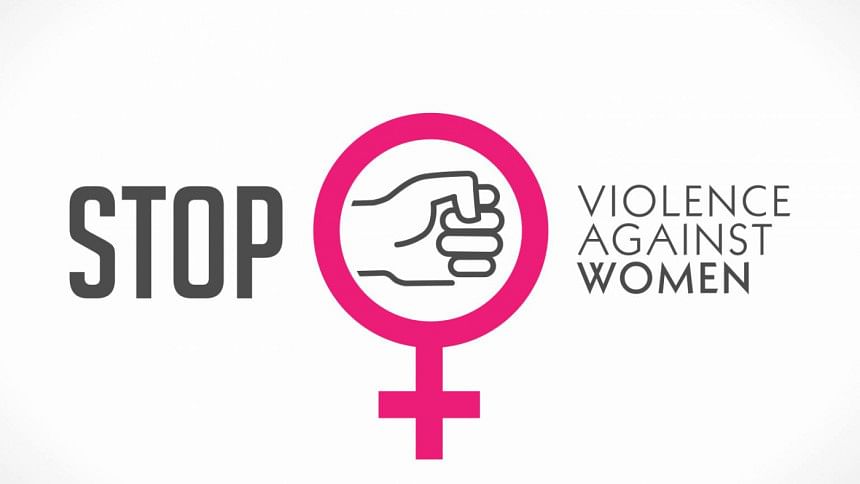Violence against women cannot be normalised

Today marks the International Day for the Elimination of Violence against Women which remains a global curse. According to United Nations (UN) data, 1 in 3 women and girls are subjected to sexual or physical violence, most often perpetrated by their intimate partners. 750 million women and girls alive today had been forced into underage marriage, meaning that they had been married before they had turned 18, and 48 percent of women married or in a relationship, are not allowed to make decisions about contraceptives, sexual relations or healthcare. The situation in Bangladesh is no different. Odhikar's data suggests that in 2018, 157 women and girls had to face sexual harassment or stalking, and 142 women were subjected to dowry related violence, with 71 women being murdered.
Staggering as the numbers are, they portray a very grim picture of us—the society—and our mind-sets. Violence against women are perpetrated in many forms: rape; child marriage; dowry related violence; domestic abuse, which includes battery; stalking; sexual harassment at workplaces and educational institutions; and sometimes, violence perpetrated by one's own family members—foeticide and female infanticide being pervasively prevalent in many countries. And reports of such violence are only increasing in frequency and brutality. On November 4, this daily published a news of a woman being tied to a tree and mercilessly beaten by her husband and in-laws for allegedly damaging their cabbage field in Bogura. We read the story in horror, and perhaps even talked about the medieval style beating the woman was subjected to, over our morning cup of tea, and by the end of the day, this back page story got buried under the more pressing issues of our lives—the T20 cricket win of Bangladesh over India the previous night, the problem of bad debts or BCL's atrocities. And while these are important stories as well, stories that we need to talk about, the story of the woman in Bogura demanded much more—a change in mind-set along with immediate concrete actions by us all to prevent this from ever happening again.
Violence against women is still happening because we as a society are allowing it to happen. We have become so conditioned in the feudal beliefs of the middle-ages that women are lesser beings and violence against them is normal, that even in the 21st century we cannot do more than just expressing our occasional concern about the prevalence of it.
And while the government is trying to come up with laws and policies to eliminate this social menace, it demands a social movement by us the citizens, because unless we become conscious and raise our voices against violence against women, our girls and women will continue to suffer. A day or a week, or a fortnight is not enough to address this problem, it needs years of efforts from us all to bring about a real change.

 For all latest news, follow The Daily Star's Google News channel.
For all latest news, follow The Daily Star's Google News channel. 








Comments